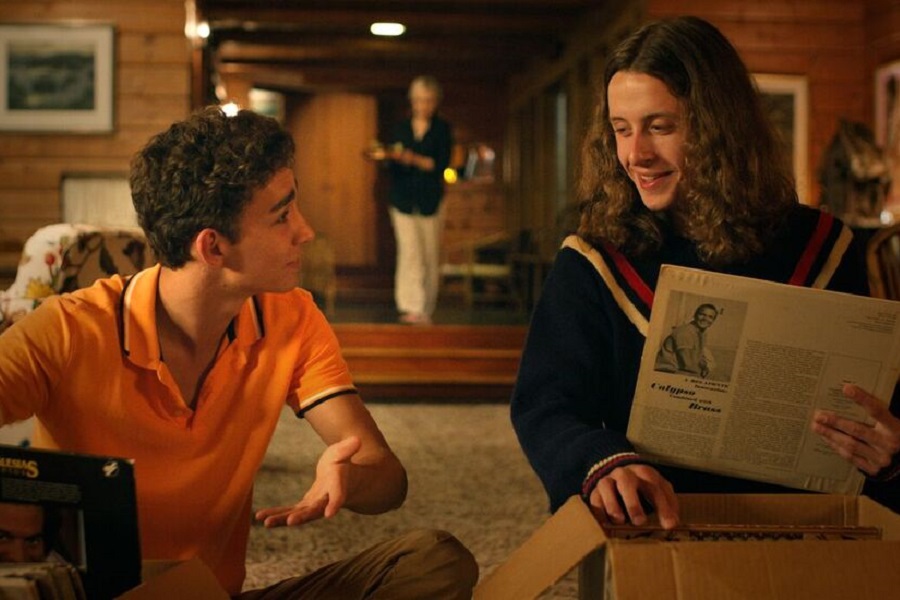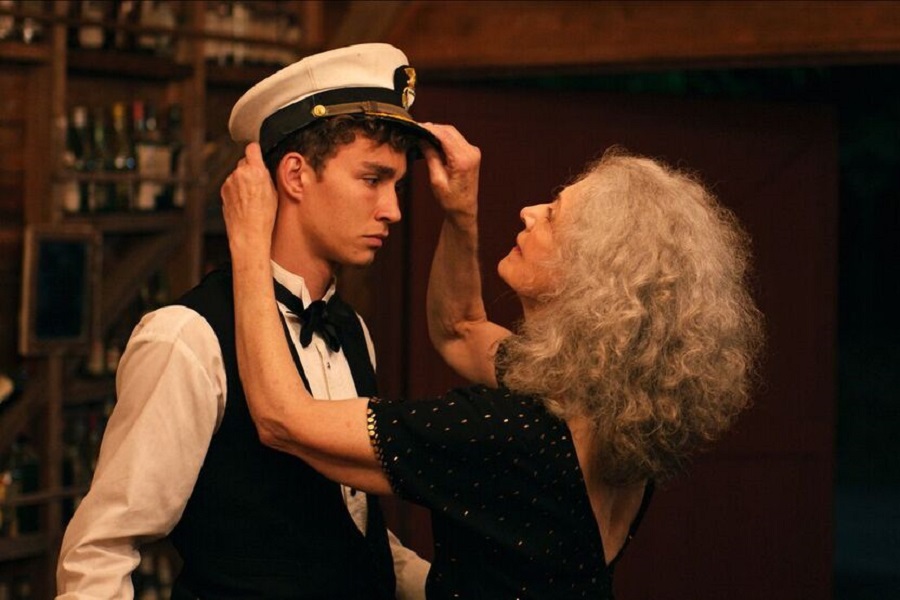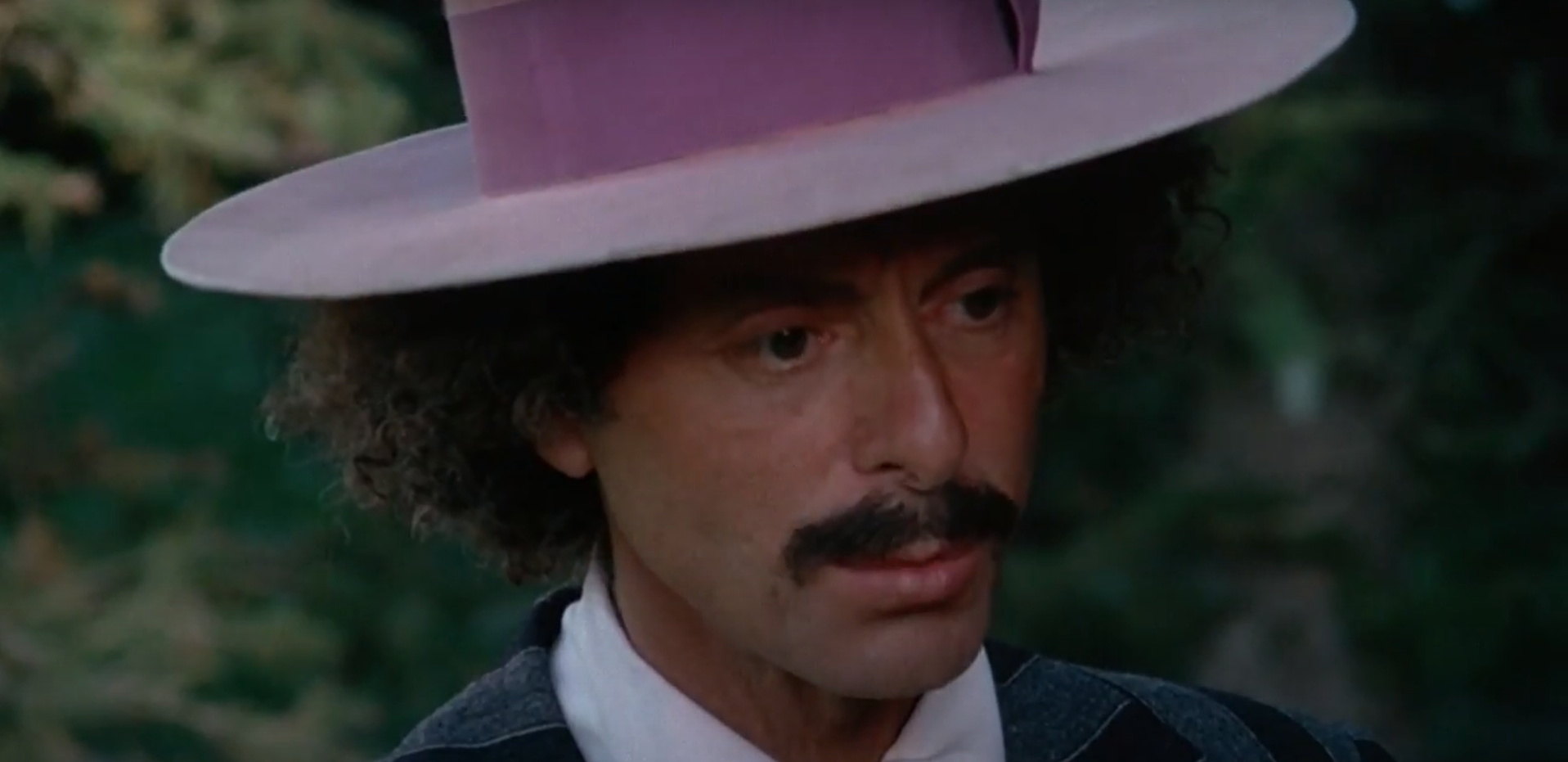There’s an old adage, that for every indie film that becomes a success, there’s a million others that are languishing in obscurity. More often than not, it’s for good reason. Sometimes something special falls through the cracks and gains prominence when a director or actor strikes it big. Usually, that lost gem shows the beginnings of an artist, finding their footing, while just missing the mark. That’s the best way to describe Ari Gold’s second film, The Song of Sway Lake. It isn’t what anyone would label a home run, but for a period of time, it threatens to go that direction. Enjoyable when it remains breezy, a drag when it attempts to please everyone.
Shortly after the suicide of his father, Ollie Sway (Rory Culkin) hatches a simple plan. He’ll head up to his family’s old get away at the lake with his Russian friend, Nikolai (Robert Sheehan), in tow, to snag a priceless record. One he believes his dad, who instilled him with a love of record collecting, would have wanted him to have. When his cantankerous grandmother Charlie (Mary Beth Peil) arrives, with the same motive (for cash, rather than sentimentality), things fall apart. Quickly. Or in the case of Sway Lake, are forgotten about entirely. When your film add needless love interests, for no other reason to bide time, you know something is amiss.

© The Orchard
It doesn’t help when film is so flimsy, it continually cuts a way to seemingly random narration, between Ollie’s grandfather and Charlie. There’s the sense it’s supposed to correlate to the feelings Nikolai and Ollie have for the women they’re infatuated with. Though that exploration is never fully probed. Instead merely glanced over. To the point where it comes off more as obsession, than based in reality. Were it used to move the plot forward, that could be understandable. Yet, writers Gold & Elizabeth Bull dole the narration out like a series of love letters, masquerading as conversation. The reasons for which are dubious. Even though it gets referred to in the film’s climax. “It’s a secret between two people deeply in love” Charlie states. Again this is Sway Lake‘s downfall, content to make grand proclamations, without doing the necessary footwork. Mistaking potential obsession as whimsical lust.
Where things start get a tad murky, is in the relationship between Ollie and Charlie. They’re both intensely stubborn individuals. Blinded by love and devotion to the things that mattered to those they’ve lost. For Charlie, it’s the summer home and surrounding lake she shared with her husband, Hal. For Ollie, it’s music. The only connection he has to his late father. A development Charlie’s quick to take credit for, without seeing how the admission irks her grandson. It isn’t just any old music that’s covered though. While the setting may be the early 90’s, the soundtrack is even further removed. Comprising mostly of jazz, Fred Astaire and big band. For a while Sway Lake uses the songs as it’s backbone. Allowing it’s plot to resemble the improvisational jazz that serves as an undercurrent. Lacking master precision though, it continually threatens to buckle under the weight.

There’s a fine through line centering on the way one’s appreciation can define, or overtake their being. For some it’s being drawn to nature, an item’s perceived value, or someone else’s potentially better life. It’s about how those distractions and illusions only carry as much weight, as that which someone places upon them. Material goods are just as valuable or important to life, as any human interaction or, it gets close to saying. The murkiness in the message comes from Sway Lake’s flip flopping desire to be a hang out film, to a family drama.
If anyone walks away remembering anything about Sway Like, it’s likely the gorgeous cinematography. Nature as serene as this is easy to capture, but Eric Lin does a tremendous job. The imagery speaks to something more creative brimming underneath the surface. Gold claws and claws at these moments, but never probes deeper. Sway Lake is about how we grieve and strive to grow. Sometimes for better, sometimes for worse. Again, the issue isn’t in probing the subject, more so that Gold seems excited that you simply notice that’s what he’s going for. Rather then exploring how people process the emotion differently.

Squint ever so slightly and The Song of Sway Lake can be viewed as a spiritual cousin to Call Me By Your Name
. Yet, what separates them is a sense of purpose and conviction. Call Me fully understands the story it’s telling. Often within some rather languid passages. The characters grow and are challenged, because that’s life. As opposed to the reaction Sway Lake gives off. Which is that of an end credits reel slowly inching forward. It may be an unfair comparison, if only to show how steadily the latter trips over itself.
What makes watching e Sway Lake a drag, in the end, is how many pieces work, while not creating a cohesive whole. A case where artist’s hesitation or self doubt, derails a picture. Gold approaches the nexus of a sweetly simple and engaging indie feature, at times. One that’s as relaxed and as inviting as the score that accompanies it. Alas, he blinks, just as things hit their stride. Content to embrace convention and letting clichés rule the later stages of the picture. In the end The Song of Sway Lake ends up much like one of leads. Welcome and jovial at first, then begins stealing from everyone it admires, before fully going off the deep end. To put it in terms the film itself could appreciate, maybe next time Gold will know when to raise the needle, than letting the record continually catch and skip in place.



